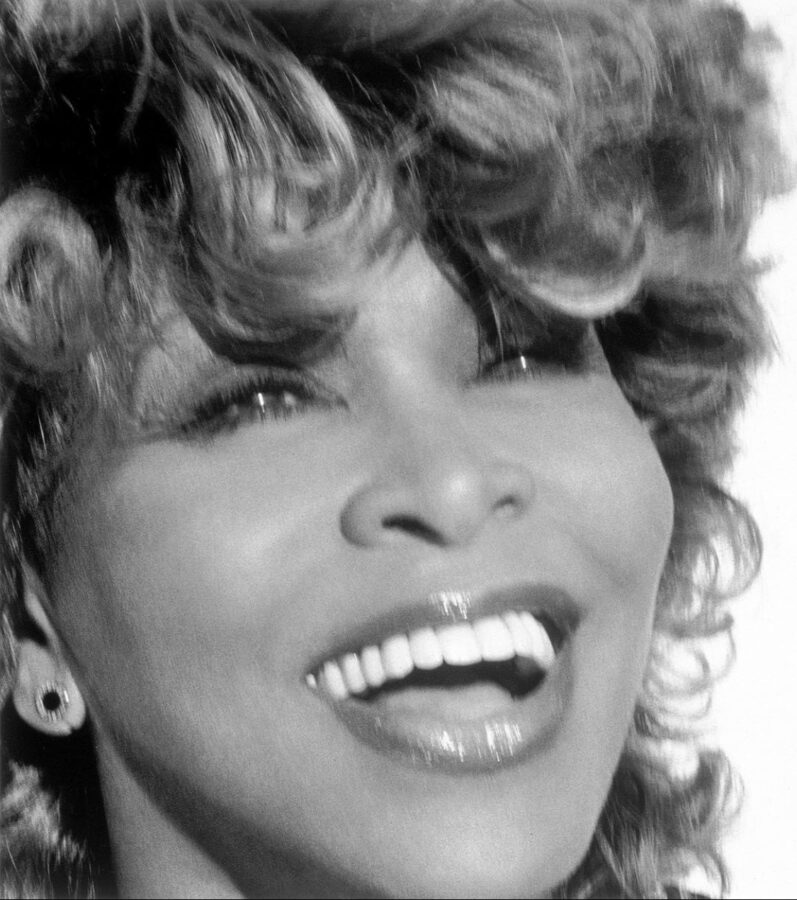The culture of lyricism in Hip Hop and Rap music has a long history of obsession with Tina Turner. It’s so prevalent that we hardly even notice it.
The Goddess of Rock
Tina Turner was born Anna Mae Bullock in Nutbush, TN. She is the undisputed Goddess of Rock. One of one.
From music to fashion, Tina Turner is of the most iconic performers and trailblazers in music history.
As she began a career in the 1950s that would span five decades, Turner broke down so many barriers. She bent the limits of what was possible for Black female artists, especially in rock music. So little room was left for Black artistry then and even to this day (even though Rock and Roll’s roots come from Black artistry).
Tina Turner revolutionized Rock and Roll as a mainstream Black female artist. She blew open doors for those who came after her with her tears, blood, sweat, and survival. Even after having to start all over. However, these facts are not what we hear about when Tina Turner’s name comes up in Hip Hop lyrics.
Biography and Biopic
In 1986, Turner released her biography “I, Tina.” In this book, she spoke publicly for the first time about her abusive past marriage with Ike Turner. Shortly after in 1993, her story was adapted for a Hollywood biopic. Angela Basset and Laurence Fishbourne were cast as the Turners. Turner herself did not even watch it when it was released because she did not need to relive it. These are the first two major references from which knowledge about Turner’s former abusive marriage became widely known. The third major reference is Hip Hop music.
Hip Hop Relevance
Hip Hop artists like Eminem, Hov, J. Cole, NBA Young Boy, Cardi B, and even R&B artists like Summer Walker have relied on what has become the old Hip Hop tradition of referencing Ms. Turner— either by government name or stage name. Reference of her abuse is like a dash of parsley on some of our favorite bangers. The list of artists and songs with these references is so lengthy, from newer lesser-known artists to well-established and widely known artists. As recently as 2020 releases. Most times a lot of these songs sound so good we just vibe along with the harmony and bop of ridicule.
A Culture of Normalizing Abuse
What does this say about how we normalize abuse?
The reality is that Tina Turner survived domestic violence in her childhood. Later as an adult, she was abused physically, sexually, psychologically, and financially every day for nearly twenty years.
I myself have rhymed along with the catchiest lines, oblivious to the trend and its consequences. One day I thought to myself, I wonder how Tina Turner would feel? How would she feel about these casual references that invoke a rehashing of her past abuse.
Lines referencing the infamous cake (outlined by the notorious movie scene in the biopic), recalling some form of beating or brutalizing, romanticizing, glorifying, and sexualizing her abuse, even praising her abuser.
What these artists are referencing so cavalierly in their music is Tina Turner’s survivor-hood. These are not just lines, ad-libs, and rhymes. These are scars that belong to someone from wounds we have no idea about. There was suffering we have no idea about, the healing we could only imagine. These are someone’s lived experiences.
Influence
Young artists today are still using these references as if it’s 1987. The younger artists are students of Hip-Hop. Anyone reading this has probably had at least three different songs pop into their head. This is a musical phenomenon that transcends age and even race. Young listeners of today only have to be slightly curious. Curious enough to google lyrics to find out what these lines are referencing. Quite possibly this leads to repeating or reinforcing a violent cycle. On both sides of the equation, there is the responsibility to be claimed for how we have normalized making a mockery of the experiences of a survivor.
Now is When We Decide to Be Better
Turner has shared in a previous interview with New York Times that to this day, there is still so much she has never divulged—the depth and the details of the abuse she suffered from Ike Turner. “I think I’m ashamed,” she said. “I feel I told enough.”
Tina Turner is an example of pure strength, courage, and resilience. This should not be taken for granted. As artists, listeners, and music lovers, our attitudes about survivors are important. Both survivors we know personally and survivors we don’t. These lyrics are bigger than the music.
In the context of reality, it is irresponsible and dangerous to assume that this is okay. Casual misogyny is irresponsible and dangerous. We cannot assume that speaking on someone’s lived experiences in such ways is harmless. Besides, retraumatization is real. Normalizing abuse as being comedic or catchy is real. The consequences are real. We cannot claim to protect Black women if we are not willing to have this conversation and claim responsibility. It is impossible to hold space for compassion and empathy, impossible to determine how we can be better, impossible to heal the culture otherwise. This is where we choose to be better to each other. This is where we uplift Tina Turner.
On March 27th, HBO presents the documentary film, Tina. With the release of this film, Turner reclaims her story for what she intends will be the last time. We will be tuning in, in support of the Goddess of Rock & Roll and survivors everywhere.
Follow MEFeater on Twitter, Instagram, Facebook, and Pinterest for more updates.
